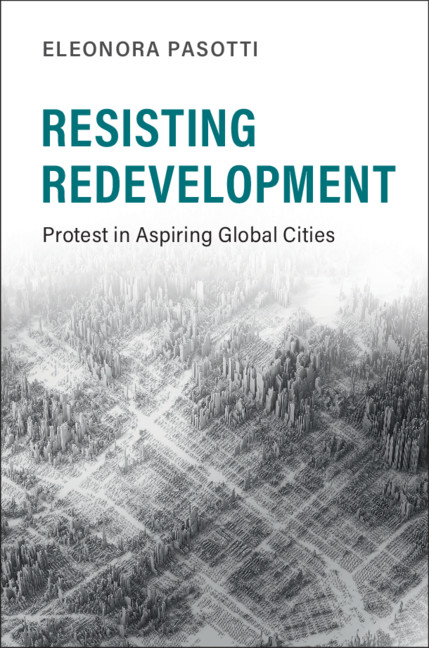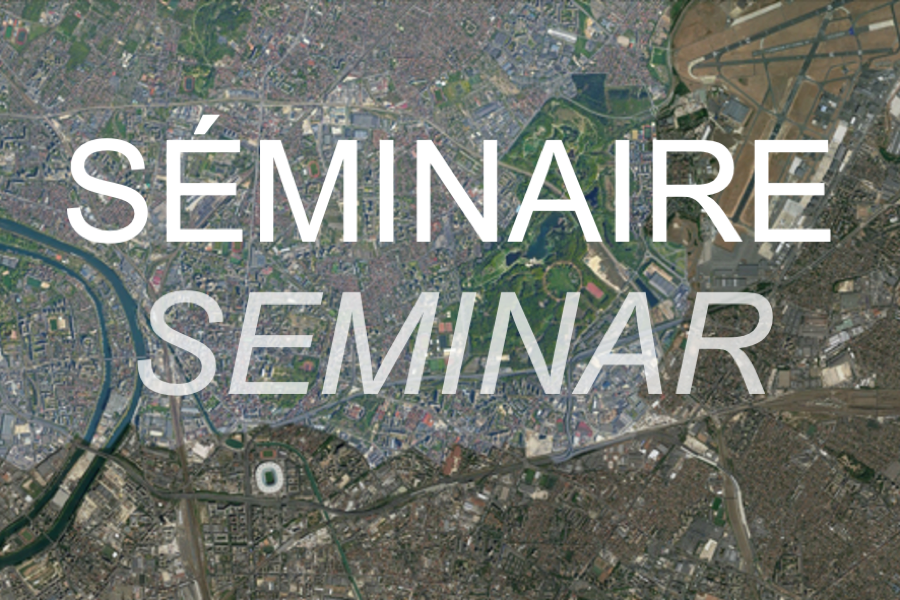Eleonora Pasotti, « Resisting Redevelopment: Protest in Aspiring Global Cities », 10.03.22, 17h30-19h15
Cities are back in Town webinar
Sciences Po, Webinar, Compulsory registration
 In Resisting Redevelopment: Protest in Aspiring Global Cities, Eleonora Pasotti explores the forces that enable residents of ‘aspiring global cities,’ or economically competitive cities, to mobilize against gentrification and other forms of displacement, as well as what makes mobilizations successful. The book examines twenty-nine protest campaigns over a decade in ten major cities across five continents, from Santiago to Seoul to Los Angeles. Eleonora Pasotti examines several partisan and institutional factors that explain protest outcomes. She also sheds light on an approach that is both understudied and remarkably effective – the practice of successful organizers deploying ‘experiential tools,’ or events, social archives, neighborhood tours, and performances designed to attract participants and transform the protest site into the place to be. Resisting Redevelopment is the Winner of the 2021 American Sociological Association Section on Collective Behavior and Social Movements Charles Tilly Distinguished Contribution to Scholarship Book Award and received the 2021 Honorable Mention for the American Political Science Association Urban Politics Section Dennis Judd Best Book Award.
In Resisting Redevelopment: Protest in Aspiring Global Cities, Eleonora Pasotti explores the forces that enable residents of ‘aspiring global cities,’ or economically competitive cities, to mobilize against gentrification and other forms of displacement, as well as what makes mobilizations successful. The book examines twenty-nine protest campaigns over a decade in ten major cities across five continents, from Santiago to Seoul to Los Angeles. Eleonora Pasotti examines several partisan and institutional factors that explain protest outcomes. She also sheds light on an approach that is both understudied and remarkably effective – the practice of successful organizers deploying ‘experiential tools,’ or events, social archives, neighborhood tours, and performances designed to attract participants and transform the protest site into the place to be. Resisting Redevelopment is the Winner of the 2021 American Sociological Association Section on Collective Behavior and Social Movements Charles Tilly Distinguished Contribution to Scholarship Book Award and received the 2021 Honorable Mention for the American Political Science Association Urban Politics Section Dennis Judd Best Book Award.
Speaker
Eleonora Pasotti, Professor in the Department of Politics at the University of California, Santa Cruz
Eleonora Pasotti’s work focuses on comparative urban politics, with an interest in urban electoral institutions, political economy, and social movements. She is the author of Political Branding in Cities: The Decline of Machine Politics in Bogotá, Naples and Chicago, which shows how direct elections, low party discipline, and high rates of municipal fiscal self-reliance enabled a move away from patronage in the mobilization of consensus. In Resisting Redevelopment: Protest in Aspiring Global Cities, Eleonora Pasotti in turn examines how the same political landscape impacts state-society relations, and specifcallly protest.
Discussion
Gilles Pinson, Professor of Political Science and Researcher at the Centre Emile Durkheim, Sciences Po Bordeaux
For more information: citiesarebackintown@sciencespo.fr


